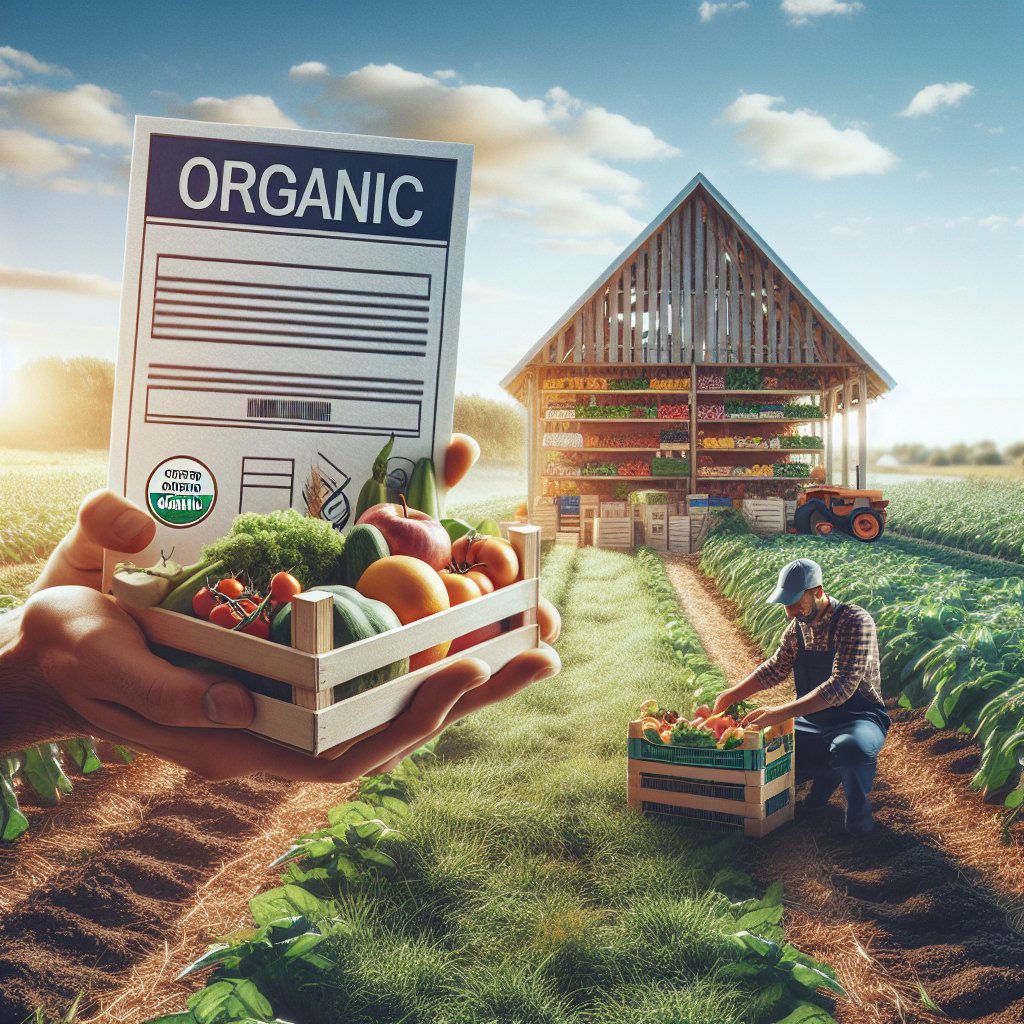Organic certification has become a pivotal element in the marketing strategies of modern farms, offering a pathway to distinguish products in a competitive marketplace. As consumers increasingly prioritize health, sustainability, and environmental impact, the demand for organic products continues to rise. This article explores the significance of organic certification in farm marketing, examining its benefits, challenges, and the evolving landscape of organic agriculture.
The Importance of Organic Certification
Organic certification serves as a trusted mark that assures consumers of the authenticity and quality of agricultural products. It is a rigorous process that involves adherence to specific standards set by certifying bodies, which vary by country but generally emphasize the exclusion of synthetic fertilizers, pesticides, and genetically modified organisms (GMOs). This certification not only enhances consumer trust but also opens up new market opportunities for farmers.
One of the primary benefits of organic certification is the ability to access premium markets. Certified organic products often command higher prices, reflecting the increased costs associated with organic farming practices. This price premium can significantly boost farm income, making organic certification an attractive option for farmers looking to improve their profitability. Additionally, organic certification can facilitate entry into international markets, where demand for organic products is particularly strong.
Moreover, organic certification can enhance a farm’s brand image. In an era where consumers are increasingly concerned about the environmental and health impacts of their food choices, being able to market products as organic can differentiate a farm from its competitors. This differentiation can be a powerful marketing tool, helping to build brand loyalty and attract a dedicated customer base.
Challenges in Obtaining and Maintaining Organic Certification
While the benefits of organic certification are clear, the process of obtaining and maintaining certification can be challenging. The transition from conventional to organic farming requires significant changes in farm management practices, which can be both time-consuming and costly. Farmers must often undergo a conversion period, during which they implement organic practices but cannot yet market their products as certified organic. This period can be financially challenging, as farmers may face reduced yields and increased costs without the benefit of organic price premiums.
Additionally, the certification process itself can be complex and bureaucratic. Farmers must navigate a maze of paperwork and inspections to demonstrate compliance with organic standards. This can be particularly daunting for small-scale farmers who may lack the resources to manage the certification process effectively. Furthermore, maintaining certification requires ongoing compliance with organic standards, which can be challenging in the face of pest pressures, climate variability, and other agricultural challenges.
Despite these challenges, many farmers find that the benefits of organic certification outweigh the costs. By investing in organic certification, farmers can access new markets, enhance their brand image, and contribute to a more sustainable agricultural system. As consumer demand for organic products continues to grow, the role of organic certification in farm marketing is likely to become even more significant.
The Evolving Landscape of Organic Agriculture
The landscape of organic agriculture is continually evolving, driven by changes in consumer preferences, regulatory frameworks, and agricultural technologies. As the organic market expands, new opportunities and challenges are emerging for farmers seeking certification.
One notable trend is the increasing interest in regenerative organic agriculture, which goes beyond traditional organic practices to emphasize soil health, biodiversity, and carbon sequestration. This approach aligns with growing consumer interest in sustainability and climate change mitigation, offering new marketing opportunities for certified organic farms. By adopting regenerative practices, farmers can further differentiate their products and appeal to environmentally conscious consumers.
Regulatory changes are also shaping the organic certification landscape. In many regions, organic standards are becoming more stringent, reflecting advances in scientific understanding and consumer expectations. While these changes can pose challenges for farmers, they also enhance the credibility and value of organic certification, reinforcing its role as a key marketing tool.
Technological advancements are providing new tools to support organic farming and certification. Innovations in precision agriculture, data analytics, and supply chain traceability are helping farmers optimize their organic practices and demonstrate compliance with certification standards. These technologies can reduce the administrative burden of certification and enhance the transparency and traceability of organic products, further boosting consumer confidence.
Conclusion
Organic certification plays a crucial role in farm marketing, offering a pathway to access premium markets, enhance brand image, and meet growing consumer demand for sustainable products. While the certification process presents challenges, the benefits of organic certification can be substantial, particularly as the organic market continues to expand. As the landscape of organic agriculture evolves, farmers who embrace organic certification and adapt to emerging trends will be well-positioned to succeed in a competitive marketplace.
In conclusion, organic certification is more than just a label; it is a strategic tool that can drive farm success and contribute to a more sustainable food system. By understanding the importance of organic certification and navigating its challenges, farmers can unlock new opportunities and build a resilient and prosperous future for their farms.



